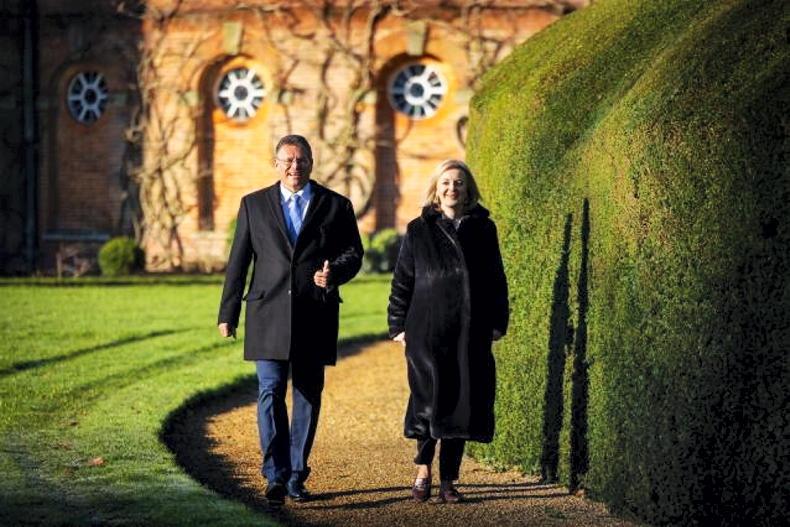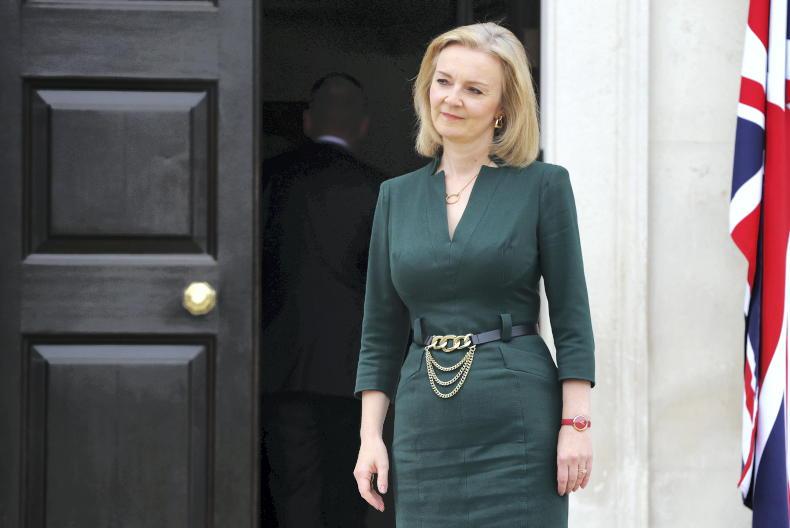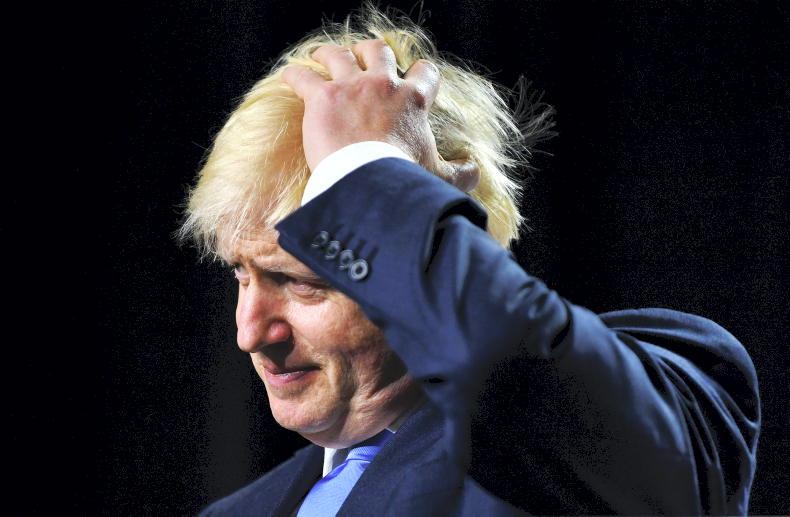The latest meeting between the lead UK and EU negotiators to try to break the impasse on the Northern Ireland Protocol hardly merited a mention this week in the UK media.
There is a sense that the agenda has moved on with lockdown partygate dominating the domestic political agenda and the Russian buildup for an invasion of the Ukraine heading the international agenda.
There is a realisation in the UK and EU that the negotiations need to be wrapped up over the next few weeks, by the end of February at the latest because of elections in Northern Ireland in May. That is another political hot potato where attitudes are now split on pro and anti-union lines which dictates view on protocol more than what practical benefits can be accrued from it to limit the impact of Brexit.
Different tone but similar message
It is clear that Liz Truss, the foreign secretary who now leads the UK negotiation, has adopted a less belligerent position than her predecessor.
However, there is also a growing view that while the tone may have changed the basic positions have moved little.
If this position of rolling extensions can continue indefinitely, then both the EU and UK may learn to live with disagreement
The bottom line is that the EU wants EU border controls at entry points to Northern Ireland from Britain and the UK does not, irrespective of what may have been signed up to.
So far, a fudge has been found whereby the EU has granted extensions to the introduction of the most sensitive checks.
If this position of rolling extensions can continue indefinitely, then both the EU and UK may learn to live with disagreement.
On the other hand, if the EU decides at some point to get serious about checks then a chain of events may be triggered that has very serious implications for Irish farmers.
Basically, the worst-case scenario is that the protocol impasse cannot be broken and this, in turn, leads to an EU hard-line on the Trade and Cooperation Agreement (TCA).
Politics could trump logic
Applying logic suggests that it will never get to this point and a way will be found as has been the case with every deadline during the Brexit negotiations.
However, logic has been sadly missing in shaping the UK–EU trading relationship post-UK withdrawal from the EU as UK exporters of goods from animal or plant origin have found out to their cost.
While these matter for the individual businesses, the reality is that they are a minor part of the UK economy. If, however, Irish exporters were to find themselves in an even worse position with the TCA suspended, the full horror of full tariffs would quickly become apparent.
Feeling of having moved on even if risk remains
The big challenge for farm leaders is keeping sufficient focus on an issue that may never happen, particularly at a time when war in Europe is a real risk and political uncertainty prevails in the UK.
Irish traders have adapted to new direct routes to Europe and the land bridge through the UK from Dublin is declining fast.
Ireland’s position in the EU single market if it was considered that this route could be used as a back door for Britain to export to the EU
Meanwhile, trade between Ireland and Britain is also following the line of least resistance through the North for both imports and exports. This option highlights the vulnerability of Ireland’s position in the EU single market if it was considered that this route could be used as a back door for Britain to export to the EU.
Logic
Pragmatists will continue to hope that logic can prevail and the committee structure of the TCA can be used to find a formula that satisfies the political need of Brexit and the practical needs of trade.
If it doesn’t, the reality is that farmers across the island of Ireland are in the front line of repercussions.
It is difficult to capture attention for this at a time of strong market prices and wider issues dominating the news but that makes it no less important.
The latest meeting between the lead UK and EU negotiators to try to break the impasse on the Northern Ireland Protocol hardly merited a mention this week in the UK media.
There is a sense that the agenda has moved on with lockdown partygate dominating the domestic political agenda and the Russian buildup for an invasion of the Ukraine heading the international agenda.
There is a realisation in the UK and EU that the negotiations need to be wrapped up over the next few weeks, by the end of February at the latest because of elections in Northern Ireland in May. That is another political hot potato where attitudes are now split on pro and anti-union lines which dictates view on protocol more than what practical benefits can be accrued from it to limit the impact of Brexit.
Different tone but similar message
It is clear that Liz Truss, the foreign secretary who now leads the UK negotiation, has adopted a less belligerent position than her predecessor.
However, there is also a growing view that while the tone may have changed the basic positions have moved little.
If this position of rolling extensions can continue indefinitely, then both the EU and UK may learn to live with disagreement
The bottom line is that the EU wants EU border controls at entry points to Northern Ireland from Britain and the UK does not, irrespective of what may have been signed up to.
So far, a fudge has been found whereby the EU has granted extensions to the introduction of the most sensitive checks.
If this position of rolling extensions can continue indefinitely, then both the EU and UK may learn to live with disagreement.
On the other hand, if the EU decides at some point to get serious about checks then a chain of events may be triggered that has very serious implications for Irish farmers.
Basically, the worst-case scenario is that the protocol impasse cannot be broken and this, in turn, leads to an EU hard-line on the Trade and Cooperation Agreement (TCA).
Politics could trump logic
Applying logic suggests that it will never get to this point and a way will be found as has been the case with every deadline during the Brexit negotiations.
However, logic has been sadly missing in shaping the UK–EU trading relationship post-UK withdrawal from the EU as UK exporters of goods from animal or plant origin have found out to their cost.
While these matter for the individual businesses, the reality is that they are a minor part of the UK economy. If, however, Irish exporters were to find themselves in an even worse position with the TCA suspended, the full horror of full tariffs would quickly become apparent.
Feeling of having moved on even if risk remains
The big challenge for farm leaders is keeping sufficient focus on an issue that may never happen, particularly at a time when war in Europe is a real risk and political uncertainty prevails in the UK.
Irish traders have adapted to new direct routes to Europe and the land bridge through the UK from Dublin is declining fast.
Ireland’s position in the EU single market if it was considered that this route could be used as a back door for Britain to export to the EU
Meanwhile, trade between Ireland and Britain is also following the line of least resistance through the North for both imports and exports. This option highlights the vulnerability of Ireland’s position in the EU single market if it was considered that this route could be used as a back door for Britain to export to the EU.
Logic
Pragmatists will continue to hope that logic can prevail and the committee structure of the TCA can be used to find a formula that satisfies the political need of Brexit and the practical needs of trade.
If it doesn’t, the reality is that farmers across the island of Ireland are in the front line of repercussions.
It is difficult to capture attention for this at a time of strong market prices and wider issues dominating the news but that makes it no less important.









SHARING OPTIONS